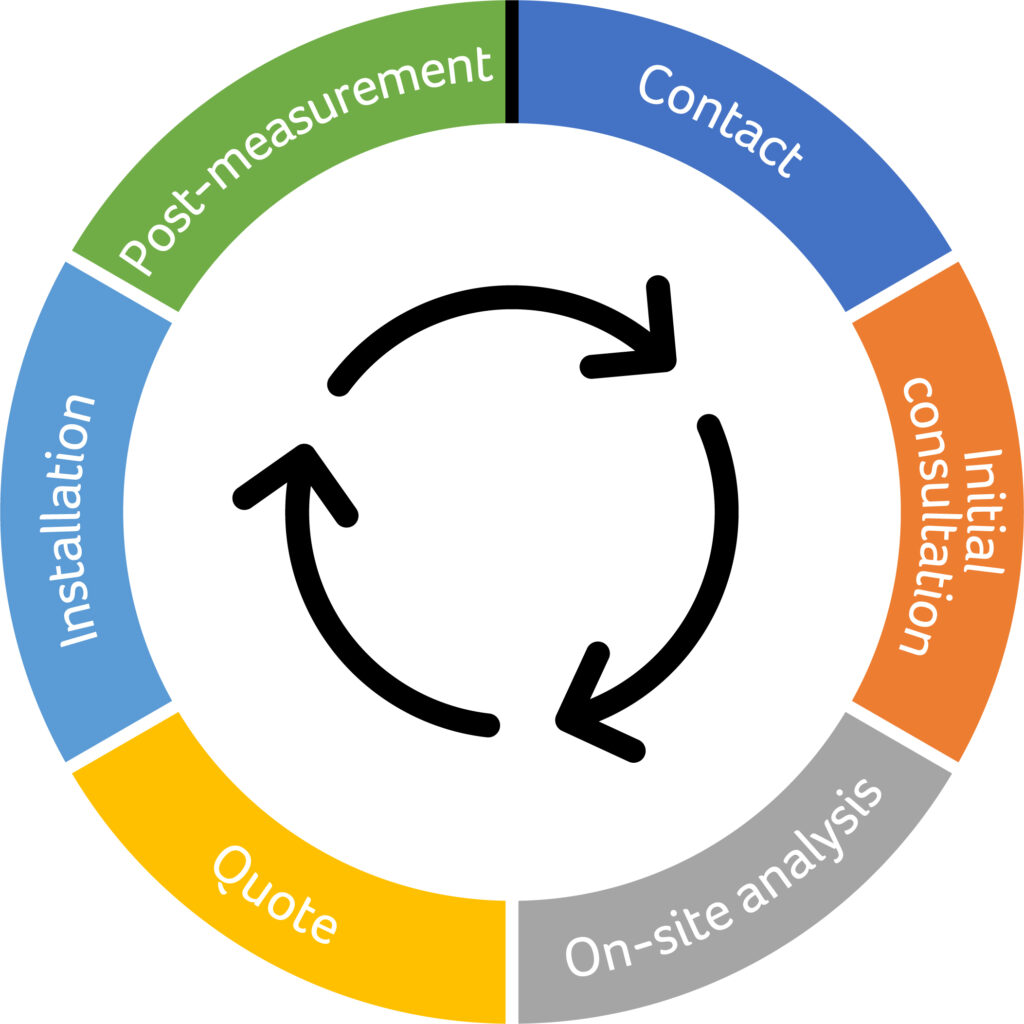Haustrocknung.ch - for construction expertise, electrophysical wall dehumidification, intelligent ventilation systems as well as mold remediation throughout Switzerland
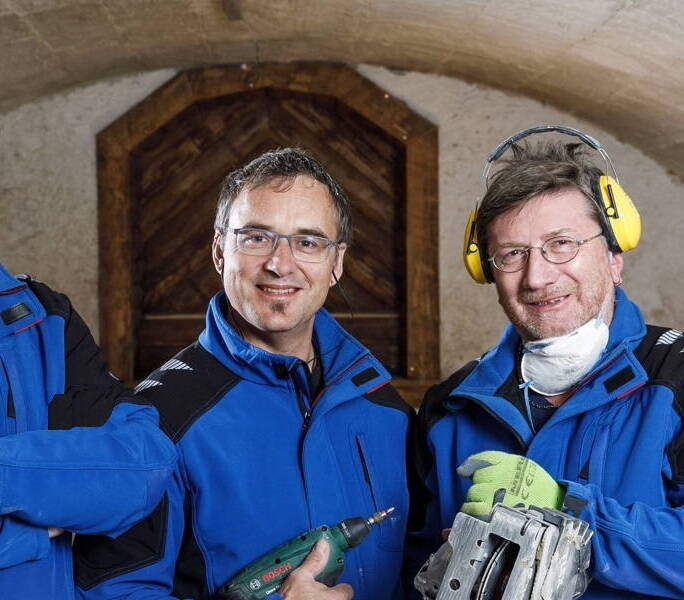
Homepage
Since 2010, we have specialized in wall dehumidification, which we implement throughout Switzerland using state-of-the-art methods. Our range of services includes construction expertise, electrophysical drying of buildings, intelligent cellar and living space ventilation and mold remediation. We ensure dry walls, a healthy feel-good climate and at the same time increase the lifespan and value of your property.

We know all about that: damp, musty basement room with mold on the walls.
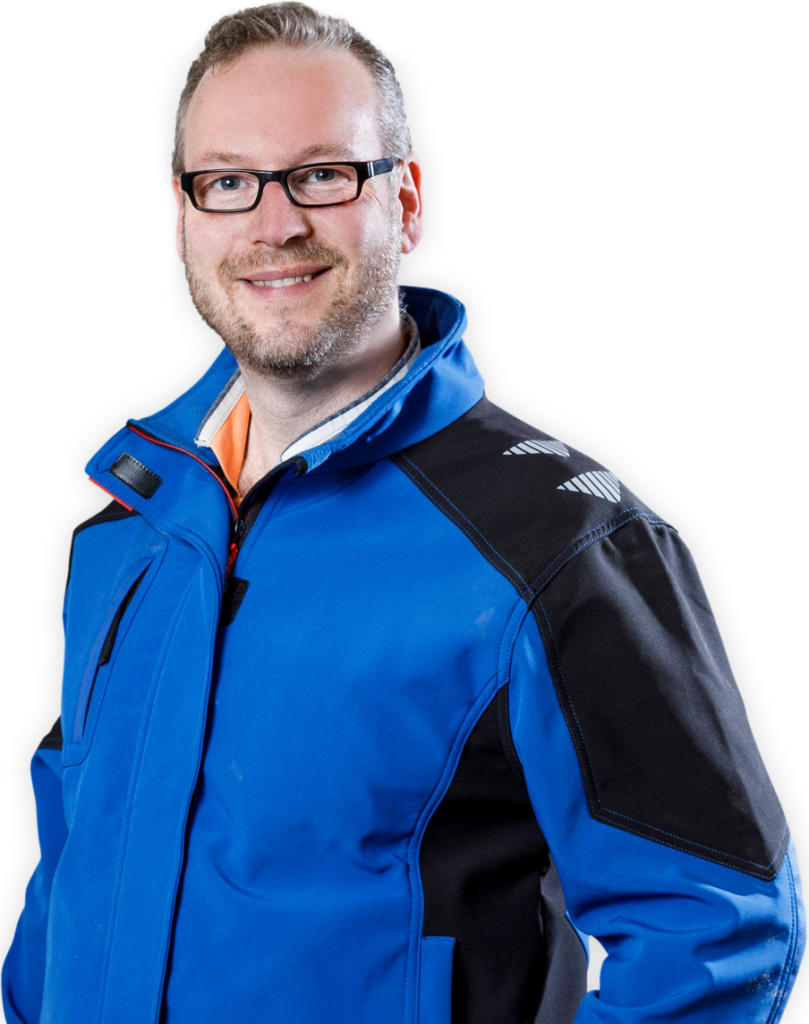
Do you have any further questions or may we prepare an offer for you?
Get in touch with us without obligation. We look forward to your inquiry!
Get in touch with us without obligation. We look forward to your inquiry!
Tobias Bayer
Managing Director
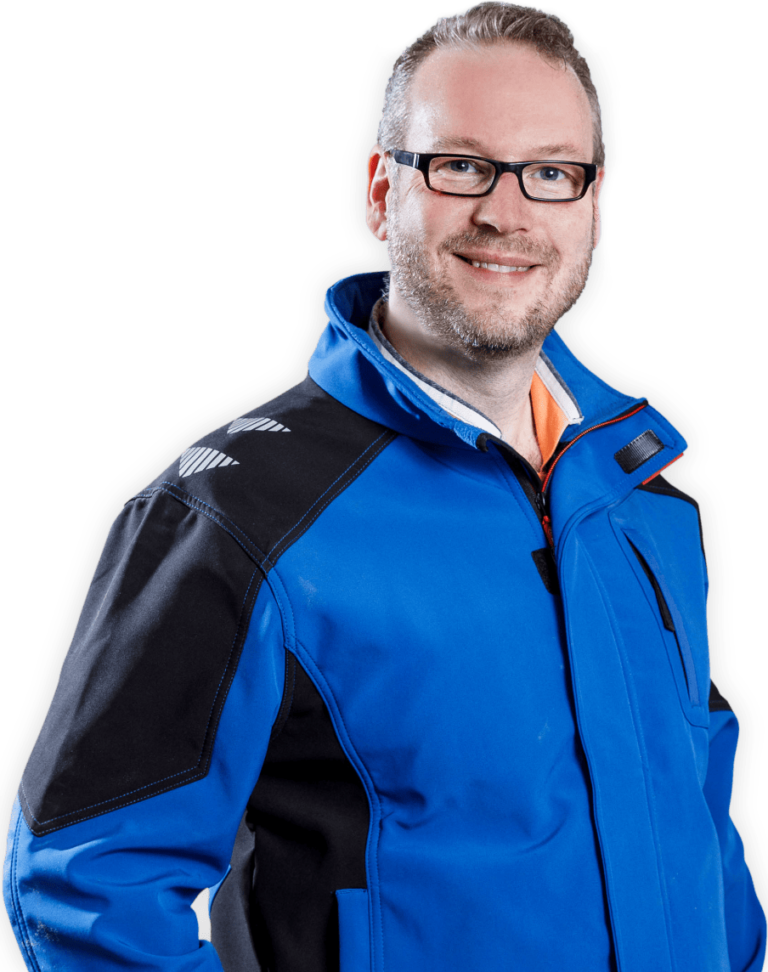
«The house stayed completely dry, no more wet floors, no more damp walls! We recommend DRYMAT® with full conviction!» ➝ other references
This depends on the cause of the moisture or on the systems we use for dehumidification. Electrophysical wall dehumidification with the DRYMAT® system costs approx. CHF 15,000 to 20,000 for a house with a floor area of 60 m². Intelligent cellar ventilators cost from CHF 2,200 with installation. Contact us without obligation for an individual offer.
The DRYMAT® system for electrophysical wall drying and the procedure for its use are ÖNORM tested. When the system is installed, we guarantee the results. However, we must first carefully analyze the cause of the moisture.
We have been the exclusive representative for DRYMAT® in Switzerland since 2010. In contrast to most other drainage methods, electrophysical wall dehumidification with DRYMAT® is able to dry out building parts down to the base of the foundation. The process is ÖNORM-certified and cost-effective because it can be installed in a minimally invasive manner and does not require extensive earthworks.
Electrophysical wall drying with the DRYMAT® system costs between CHF 15,000 and 20,000 for a single-family house with a floor area of 60 m². In contrast, intelligent basement or living room ventilation costs from CHF 2,200 including installation. Only after assessing the cause of the moisture can we say which systems are required.
The price for the installation of the DRYMAT® system depends on the following factors and may be higher in individual cases: Length and accessibility of the wall, building material, demands on aesthetics, travel distance. For basement ventilators, the primary factors are the type of installation, the wall thickness and the material of the wall.
The operation of the DRYMAT® system causes annual electricity costs of approximately CHF 50. These costs are primarily caused by the control unit. Only an electrical potential is induced in the wall. This means that hardly any electricity flows. For intelligent basement and residential ventilators, on the other hand, the electricity costs amount to about CHF 25 per year.
Both the DRYMAT® system and the cellar ventilation basically do not cause any maintenance costs. The filter of the cellar fan should be changed approximately every 2 years.
This can have many causes. If the water enters the building from the outside, the actual problem is usually not the source of moisture or leaky walls, but certain properties of the building fabric that cause moisture to be absorbed by the wall, similar to a sponge. Physically, this effect is promoted by the negatively charged potential of the wall.
According to the osmotic principle, a force acts on a liquid and flow occurs when an electric field is applied parallel to the surface. Water normally rises in the building fabric because the wall is negatively charged. With the ÖNORM-tested DRYMAT® system, we ensure that a positive electrical potential is induced in the wall compared to the surroundings. This means that water can no longer rise in the wall. This results in effective drying of the masonry.
If there is a moisture problem, the use of powerful building dryers can increase the salinity of the wall because the water evaporates and the salt remains in the wall. The increased salt concentration now draws in more moisture. Along with the moisture, more mineral salts enter the building fabric. While some of the moisture on the inside of the wall evaporates, the dissolved salts crystallize and increase in volume. Over time, this leads to spalling and further damage to the building fabric.
Electrophysical wall dehumidification is cost-effective, actively acts on the moisture and thus dries the building fabric down to the cellar floor. Neither extensive earthworks nor deep interventions into the building substance are necessary. While conventional methods involve the use of hazardous chemicals, electroosmosis is harmless to humans and the environment.
The DRYMAT® system can effectively eliminate moisture rising in the building fabric as long as the building envelope does not have major damage and cracks. The DRYMAT® system can cope even with high levels of moisture.
The DRYMAT® system is not suitable for drying buildings after water damage. In case of an adjacent water vein or pressing slope water, the electrical potential of the DRYMAT® system can only dehumidify the masonry. If the building envelope has major damage, such as holes or cracks, these must first be repaired. For this reason, we make as standard in each case a thorough investigation in relation to the causes of the moisture.
Yes, in principle DRYMAT® can be applied to all building materials in which moisture can rise. However, the moisture must have a way out. If, on the other hand, it encounters a water-impermeable barrier layer on its way out, it could accumulate there. Incidentally, rising damp can occur even in masonry with vapor-tight clinker bricks, where moisture can rise through the joints.
Yes, the DRYMAT® system and the procedure for its application are ÖNORM tested. If we use the DRYMAT® system, we guarantee its results. In order to guarantee the results, we first carefully analyze the cause of the moisture. This ensures that there is no criterion that excludes the use of the DRYMAT® system.
Moisture from the inside, such as condensation, can be effectively counteracted with an intelligent fan. In case of a moisture problem, where moisture rises in the building structure, we install the DRYMAT® system for dehumidification. In many cases, the combination of both systems makes sense.
First, our building experts make a thorough analysis of the cause of moisture. In less severe cases, we install a basement or living room ventilator. In the case of rising damp in the masonry, on the other hand, the DRYMAT® system is used. We install electrodes in the affected walls and a control device. In the end, only the control unit is visible. After 18 months, we carry out a measurement of the residual moisture.
The installation of the DRYMAT® system takes about three to five days for a house with a floor area of 60 square meters. Once the system is installed, no new moisture can penetrate the building structure. It takes between 0.5 and 3 years for the residual moisture to dry out. This process can be accelerated with an intelligent fan.
First, we drill holes in the walls and floor for the titanium electrodes. Second, we mill narrow slots from the holes to the location of the control unit for the wiring of the electrodes. Third, we install the electrodes and connect them electrically. Fourth, we mount the control unit, connect it to the power and test the system. Finally, we plaster the slots and put the equipment into operation.
The cause of damp masonry can be rainwater seeping into the ground near your house or a water tap on your house wall, as well as moisture rising in the masonry or penetrating through cracks. Defects in water-bearing house installations or incorrect ventilation can be further causes of damp walls. Therefore, you should regularly clean rain gutters, downpipes and floor drains and check that they are running smoothly. Click here for the «Damp walls» guide.
The causes of damp walls and rooms can overlap and are therefore difficult to identify. Therefore, you should contact one of our experts (building experts, building biologists, energy consultants) in any case.
Attention. Building dryers are to be used for wall dehumidification only for a short time. If they run for a long time, even more moisture will be drawn into the wall because the salt concentration in the wall will increase in the long term.
Intelligent ventilation systems constantly measure the humidity and air temperature in the basement. The device is programmed so that the basement room is ventilated by a fan only when the humidity in the room does not increase further, this dehumidifies your basement and dries your walls and walls.
A drying device with the active principle of electroosmosis dehumidifies the masonry by applying a low continuous electrical voltage. Electrodes made of titanium are installed in the exposed, damp masonry and in the floor and then plastered (you see here a typical construction site). The electrophysical process makes your wall or building dry.
A combination of electrophysical masonry dehumidification and intelligent ventilation system brings the comprehensive success in masonry drying and in the long term is cheaper than most other measures offered on the market for drying, dehumidification of masonry.
If you have cold wall areas, we recommend our baseboard heaters, which provide comfortable, even, warm walls and rooms; ideal for old buildings with mold problems.
Do you want to preheat your chalet or workshop so that when you arrive you will find a warm welcoming place? Then take a look at our solar ventilation and heating. Solar heating keeps your rooms at a comfortable base temperature at zero operating cost.
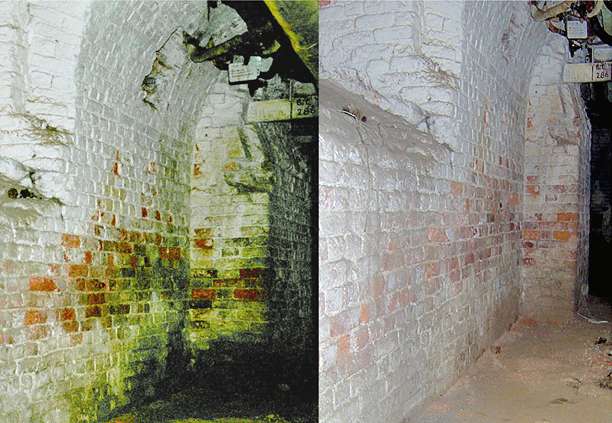
After your contact via registration form, our experienced experts will call you for an initial consultation. If you are interested, we will come to the affected object for an on-site analysis. On site we analyze the damage and make measurements to clarify the damage mechanism. Based on the on-site survey, we will provide you with an expert opinion or quote. On the basis of the offer you decide whether you want a restoration. After the restoration, we make one or more periodic follow-up measurements, if desired.
This approach costs little and brings you a lot. By using our building experts you will save time and money. Our damage expert will be happy to provide you with precise information about the costs and further details. Contact us.
